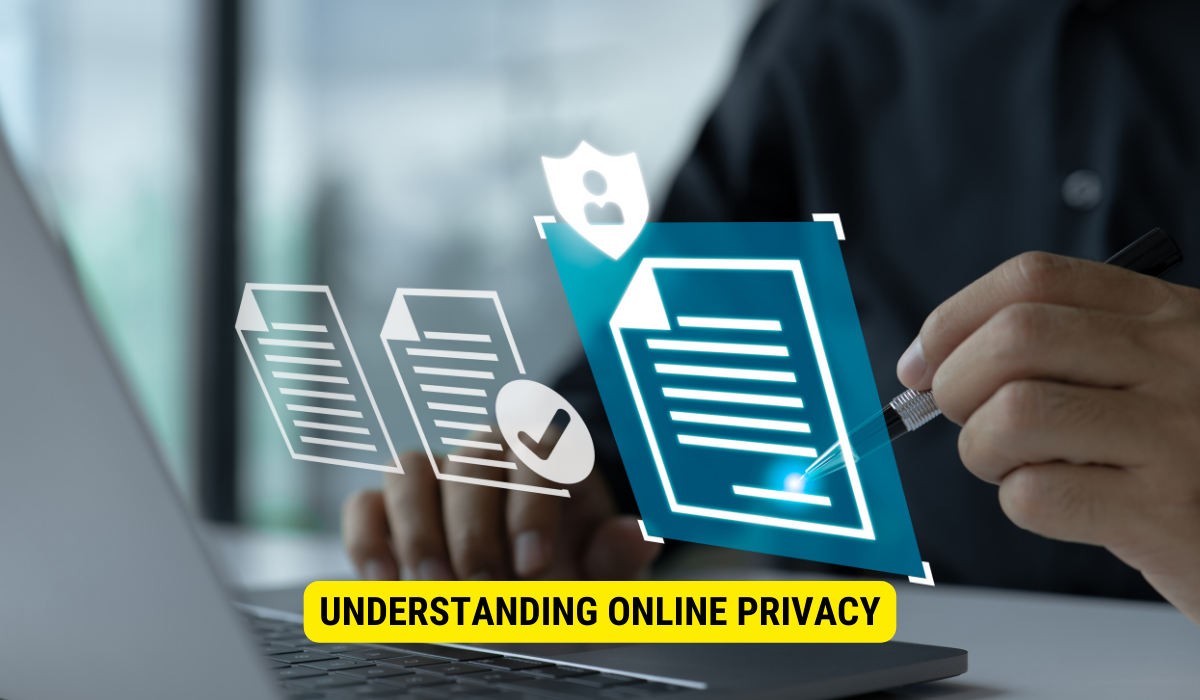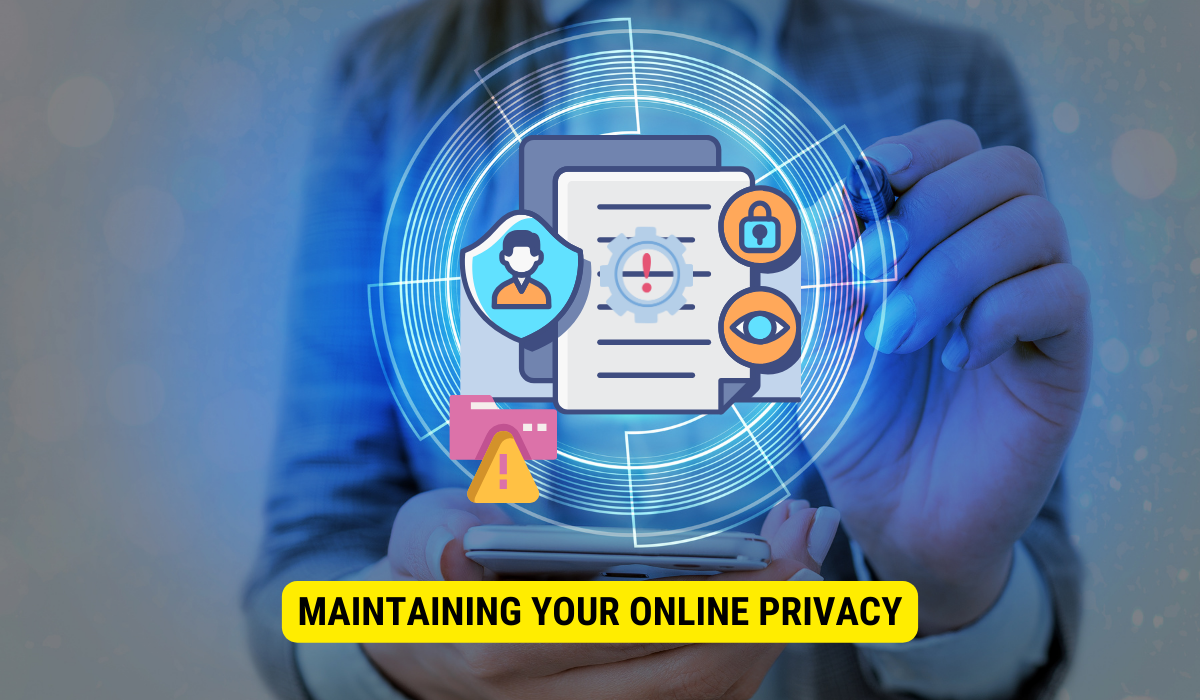To protect your privacy and remove data from online services, follow these steps:
- Review Privacy Settings: Regularly review and update the privacy settings on your online accounts to control what information is shared and with whom.
- Delete Unused Accounts: Close or delete online accounts and services you no longer use. This reduces your online presence.
- Use Strong Passwords: Use strong, unique passwords for each online account. Consider using a password manager to keep them secure.
- Enable Two-Factor Authentication: Activate two-factor authentication (2FA) wherever possible to add an extra layer of security.
- Limit Sharing: Be cautious about sharing personal information online, and avoid oversharing on social media.
- Regularly Google Yourself: Search for your name online to see what information is publicly available. Request removal of any outdated or sensitive data if possible.
- Remove Personal Data: Contact online services to request the removal of your personal data, especially from sites that share your information without consent.
- Use Online Privacy Tools: Utilize online tools and services that help you manage your digital footprint and privacy.
In today’s digital age, wherever our lives are increasingly lived online, protecting our privacy has become more critical. With the vast amount of personal information stored and shared through online services, it is essential to understand how to safeguard your privacy and remove unwanted data. Together, we will discover the importance of online privacy, how to identify your digital footprint, strategies for protecting your online privacy, and steps to effectively remove your data from online services. By following these steps, you can take control of your privacy and ensure that your personal information remains secure.
Understanding Online Privacy
Online privacy is a topic that has gained significant attention in recent years, and for good reason. In today’s digital age, where almost every aspect of our lives is interconnected through the internet, protecting our personal information has become more critical than ever before. From social media platforms to online shopping sites, we often share our data without fully understanding the implications.
The Importance of Protecting Your Online Privacy
Your online privacy is a fundamental right that should not be taken for granted. With the ever-increasing threat of data breaches and identity theft, defending your personal information is crucial to safeguarding your identity and preventing potential harm. In addition, respecting your privacy helps maintain trust in online platforms and ensures that your data is handled responsibly.
One of the primary reasons why protecting your online privacy is essential is the risk of identity theft. Cybercriminals are continuously finding new traditions to exploit vulnerabilities and gain unauthorized access to personal information. Once they have your data, they can use it for malicious purposes, such as opening fraudulent accounts, making unauthorized purchases, or even committing more serious crimes.
Moreover, protecting your online privacy is not just about preventing financial loss or identity theft. It is also about preserving your autonomy and freedom. When your privacy is compromised, you may feel violated and exposed. Your online activities, preferences, and even your location can be tracked and monitored, leading to a loss of control over your own digital life.
Common Misconceptions About Online Privacy
There are several misconceptions surrounding online privacy that need to be debunked. One prevalent misconception is that online services will automatically prioritize your privacy. While companies strive to ensure data protection, it is essential to remain vigilant and actively protect your privacy.
It is important to remember that business interests primarily drive online platforms. While they may have privacy policies in place, these policies are often subject to change and may not always prioritize your best interests. Therefore, it is crucial to be proactive in understanding the privacy practices of your platforms and taking steps to protect your information.
Another misconception is that privacy settings are enough to keep your information secure. While privacy settings are a useful tool, they are not foolproof, and it is important to implement additional measures to enhance your privacy. For instance, using strong and unique passwords, enabling two-factor authentication, and regularly updating your software can significantly reduce the danger of unauthorized access to your accounts.
Furthermore, being mindful of the information you share online is crucial. Oversharing personal details, such as your full name, address, or phone number, can make you more vulnerable to identity theft & other forms of online fraud. By being cautious about the information you disclose, you can minimize the risk of your data falling into the wrong hands.
In conclusion, understanding and protecting online privacy is paramount in today’s digital landscape. By being proactive, staying informed about privacy practices, and implementing necessary security measures, you can safeguard your personal information and enjoy a safer online experience.
Identifying Your Digital Footprint
What is a Digital Footprint?
Your digital footprint refers to the path of data you leave behind when using online services. It includes information such as your browsing history, social media interactions, and online purchases. Understanding your digital footprint is the primary step towards protecting your privacy effectively.
How to Assess Your Digital Footprint?
Assessing your digital footprint is crucial for identifying potential privacy risks. Start by compiling a list of your regular online facilities such as social media platforms, email providers, and online shopping websites. Review each platform’s privacy policies and terms of service to understand how your data is collected, stored, and shared. Additionally, use online tools and services that analyze your digital footprint and provide insights into the publicly available information.
Strategies for Protecting Your Online Privacy
Using Secure and Encrypted Connections
One effective strategy for protecting online privacy is using secure and encrypted connections whenever possible. Ensure your websites have a secure connection by checking for the padlock symbol in the address bar. Additionally, consider using a virtual private network when browsing the internet to encrypt your data and further enhance your privacy.
The Role of Passwords in Online Privacy
Passwords play a vital role in safeguarding your online privacy. Make strong, unique passwords for each online account to minimize the risk of unauthorized access. Evade using common words or easily guessed information, such as your name or birthdate. Instead, opt for a mixture of uppercase and lowercase letters, numbers, and symbols. Consider using a password manager to firmly store and manage your passwords.
Privacy Settings and Their Importance
Utilizing privacy settings is another crucial strategy for protecting your online privacy. Take the time to review and customize the privacy settings on all the online platforms you use. Limit the information that is publicly visible and restrict access to your data. Frequently review and update these settings to ensure they align with your privacy preferences.
How to Remove Your Data from Online Services?
Understanding the Right to Be Overlooked
The “right to be forgotten” is a legal concept that permits persons to request the removal of their data from online services. This right is essential for protecting your privacy and ensuring that outdated or irrelevant information does not harm your online reputation. However, the right to be forgotten is not absolute, and the process for removing data varies depending on the platform and jurisdiction.
Steps to Remove Personal Data from Social Media
Removing personal data from social media platforms can help you regain control over your privacy. Start by reviewing the privacy settings on each platform and adjust them accordingly. Delete any posts or photos that contain sensitive or unnecessary personal information. Consider neutralizing or deleting your account if you no longer use the platform or feel uncomfortable with the level of data sharing.
Deleting Data from Search Engines
Search engines often index and display personal information in their search results. To remove such information from search engine results, contact the provider and submit a removal request. Remember that search engine removal requests are subject to review and may not always result in the removal of the desired information.
Maintaining Your Online Privacy
Regularly Updating Your Privacy Settings
Privacy settings should not be a one-time setup; they require frequent updates to reflect changes in your privacy preferences and the platform’s settings. Repeatedly review and adjust your privacy settings on all online services you use. Take advantage of any new features or options that enhance your privacy.
The Benefits of Using Privacy Tools
Privacy tools can further enhance your online privacy by providing additional layers of protection. Consider using tools such as ad blockers, browser extensions that block trackers, and privacy-focused search engines. These tools can help prevent websites from collecting unnecessary data and reduce the chances of being targeted with intrusive advertisements.
Staying Informed About Privacy Policies
Lastly, staying informed about privacy policies is crucial for maintaining online privacy. Regularly review the privacy policies of your online services to understand how your data is handled. Be cautious of any changes to these policies and make informed decisions about continuing to use the service based on your privacy concerns.
Key Takeaways
- Protecting your online privacy is essential in safeguarding your personal information and preventing potential harm.
- Understanding your digital footprint is crucial for identifying and managing potential privacy risks.
- Protecting online privacy includes using secure connections, creating strong passwords, and utilizing privacy settings.
- The right to be forgotten allows you to request the removal of personal data from online services, but the process may vary.
- Maintaining online privacy involves regularly updating privacy settings, using privacy tools, and staying informed about privacy policies.
Frequently Asked Questions
Conclusion
By following the phases outlined above, you can take control of your online privacy and remove data from online services effectively. Remember to habitually review and update your privacy settings, utilize privacy tools, and stay informed about privacy policies to protect your privacy online.
